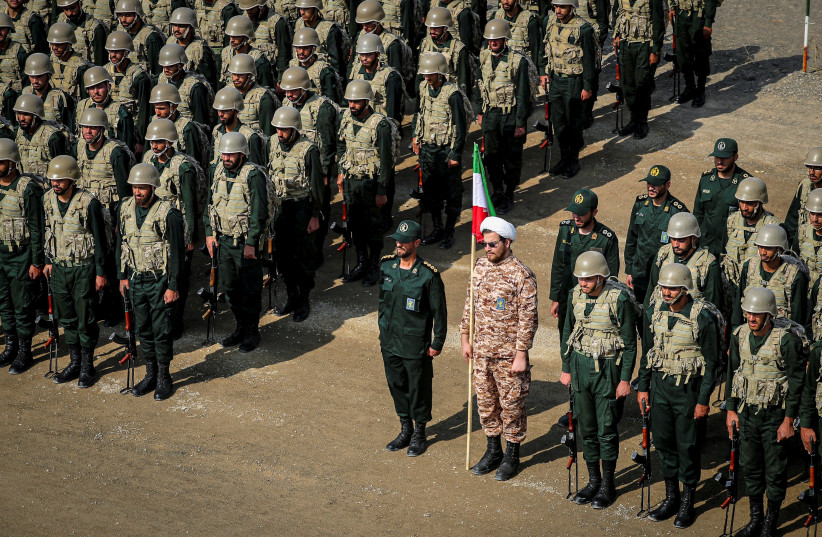Iran is scrambling to back its ally in Syria. The Assad regime is a key friend of Tehran, and Syria acts as a conduit for Iranian arms trafficking to Hezbollah in Lebanon.
Since last Wednesday, Assad has been suffering major setbacks. Syrian opposition groups led by Hayat Tahrir al-Sham (HTS) swept into Aleppo and defeated his forces. There are concerns the Syrian regime could be in danger.
“The new movements of Takfiri-terrorist groups are part of the plot of the US and the illegitimate Zionist regime,” Mohammad Bagher Qalibaf, speaker of the Iranian parliament, said Friday in a post on his X account.
“After defeating the Zionist regime, the Islamic Republic of Iran and the Axis of Resistance will support the Syrian government and people against the new conspiracy like in the past.”
The neighbors of Syria should be “vigilant and not to fall into their trap,” he wrote, in an apparent warning to Turkey.

Qalibaf flew a plane into Lebanon during the conflict between Israel and Hezbollah, showing how he is willing to put himself in harm’s way to support Iran’s “Axis of Resistance.”
On November 28 and November 29, Iran didn’t mention the conflict in Syria much. It was waiting to see what might happen. Tehran awakened on November 29 to the danger to its ally, however, and it began to assign blame.
The first inkling that something was amiss was on November 29, when Islamic Republic News Agency (IRNA), Iran’s official news agency, said: “Media outlets have reported that the dormitory facilities of the University of Aleppo were shelled by terrorists, resulting in the deaths of four civilians, including two students.”
Meanwhile, as Syrian regime forces retreated from Aleppo without firing a shot, they sought to create a defensive line near the city of Hama. Syria’s regime can ill afford to lose Hama on the road to Homs and Damascus.
That could lead to a domino effect of exponentially increasing collapse. Therefore, Iranian media reported on November 30 that Hama had not fallen.
Iranian Foreign Minister Abbas Araghchi announced he would travel to Syria on the first leg of a regional tour “that will also take him to several more countries,” IRNA reported. He was supposed to leave Saturday evening.
Syrian President Bashar Assad has been in Moscow for the past several days. He has been AWOL basically since HTS began the attack on Aleppo on November 27. Assad has not appeared in public but has made several phone calls to shore up support.
Araghchi is also going to Turkey. Turkey backs the SNA, a collection of former Syrian rebel groups, but it has not yet directed it to attack the Assad regime.
Israel and the US accused
Araghchi has also warned that the HTS advance is part of a “broader scheme by the Israeli regime and the United States to destabilize the West Asian region,” IRNA reported. He made his comments in a call with Russian Foreign Minister Sergey Lavrov.
“Araghchi and Lavrov reaffirmed their respective countries’ strong support for Syria’s national sovereignty and territorial integrity, emphasizing the importance of backing the Syrian government and military in their fight against terrorism,” IRNA reported.
Iran wants to coordinate with Russia and Turkey to deal with the escalation in Syria. These countries form part of what is known as the Astana process, which was designed to end the civil war in Syria.
“Araghchi reminded the international community of its responsibility to combat terrorism, warning that the recent terrorist activities in Syria are part of a plot by the Israeli regime and the US to undermine regional security,” IRNA reported.
Iran is clearly trying to blame the US and Israel for the events in Syria.
The White House issued a statement on November 30 that said: “The United States has nothing to do with this offensive, which is led by Hay’at Tahrir al-Sham (HTS), a designated terrorist organization. The United States, together with its partners and allies, urge de-escalation, protection of civilians and minority groups, and a serious and credible political process that can end this civil war once and for all with a political settlement consistent with UNSCR 2254. We will also continue to fully defend and protect US personnel and US military positions, which remain essential to ensuring that ISIS can never again resurge in Syria.”
Israel is watching the developments in Syria closely.
